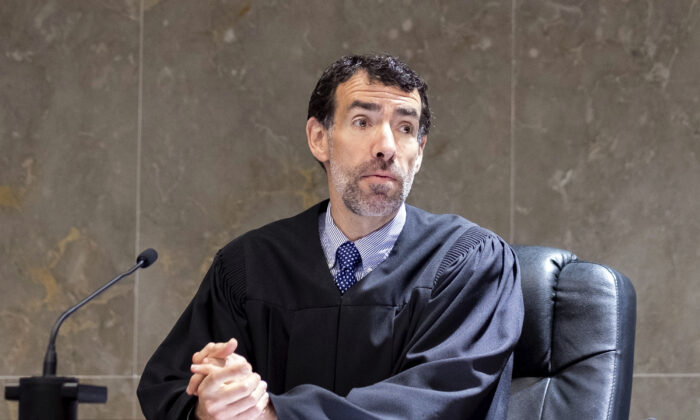The law banned abortions after the detection of fetal cardiac activity, or roughly 6 weeks’ gestation.
A Georgia judge struck down on Sept. 30 the state’s law barring abortions after a fetal heartbeat is detected, extending the cutoff on the procedure’s legal availability to 22 weeks of pregnancy.
The Living Infants Fairness and Equality (LIFE) Act, signed by Gov. Brian Kemp in 2019, took effect in 2022 after the U.S. Supreme Court overturned the federal right to abortion.
In that ruling, the high court’s justices found that the U.S. Constitution does not confer a right to abortion. But Georgia law does, Fulton County Superior Court Judge Robert McBurney held in his ruling.
“A review of our higher courts’ interpretations of ‘liberty’ demonstrates that liberty in Georgia includes in its meaning, in its protections, in its bundle of rights the power of a woman to control her own body, to decide what happens to it and in it, and to reject state interference with her healthcare choices,” McBurney wrote, declaring the law unconstitutional.
He also said that the right to have an abortion is not unlimited.
“When a fetus growing inside a woman reaches viability, when society can assume care and responsibility for that separate life, then—and only then—may society intervene,” he wrote.
Fetal cardiac activity can usually be detected after about six weeks of pregnancy. Georgia’s law banned abortions after that point and included exceptions for cases involving rape, incest, and medical emergencies.
McBurney previously struck down the law as unconstitutional in 2022, but the Georgia Supreme Court overturned that ruling last October.
“This judge has been reversed before and should be reversed again,” wrote Katie Glenn Daniel, state policy director for Susan B. Anthony Pro-Life America, in a social media post.
“In the meantime, tragically, Georgia babies will die, some while they can feel the pain of the abortion.”
The lawsuit was brought by SisterSong Women of Color Reproductive Justice Collective, the American Civil Liberties Union (ACLU), and several other pro-abortion organizations.
Monica Simpson, executive director of SisterSong, called the ruling a “significant step in the right direction.”
“We are encouraged that a Georgia court has ruled for bodily autonomy,” Simpson said in a statement. “At the same time, we can’t forget that every day the ban has been in place has been a day too long.”
McBurney’s ruling means Georgia’s abortion law will revert back to a 2012 law that barred the procedure after 22 weeks of pregnancy at least for the time being, though it could be put on hold pending an appeal.
Kara Murray, a spokesperson for Georgia Attorney General Chris Carr, told The Associated Press that the state intends to continue fighting the case.
The Associated Press contributed to this report.

